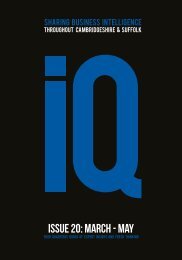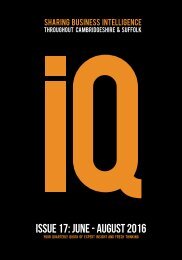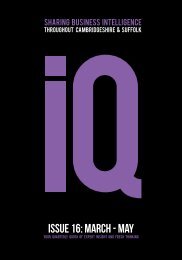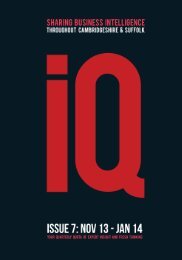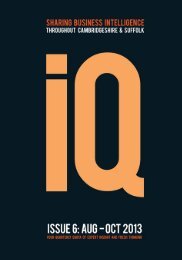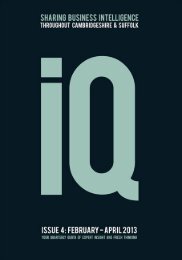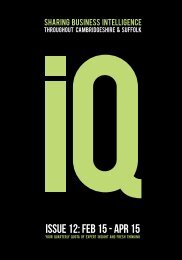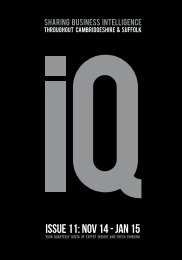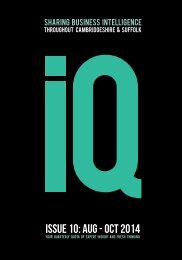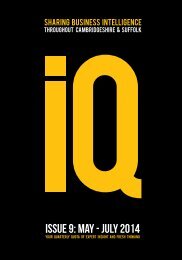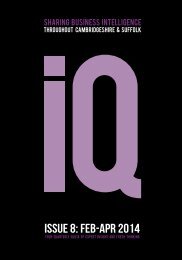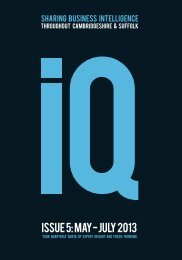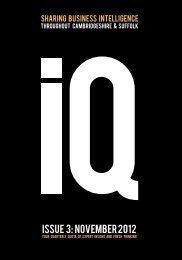IQ-Magazine-Issue-15
You also want an ePaper? Increase the reach of your titles
YUMPU automatically turns print PDFs into web optimized ePapers that Google loves.
<strong>IQ</strong> business advice<br />
Area Director for SME banking for Lloyds, Steve Elsom, offers advice to<br />
businesses and individuals on how they can take measures to keep data safe.<br />
One of the fastest growing trends across the economy is cyber<br />
crime. Every day, there are around 2,000 attacks worldwide,<br />
costing the global economy an estimated £300bn a year. Yet<br />
more than two thirds of firms say that they feel inadequately<br />
protected against increasingly sophisticated hackers looking<br />
to extort money through blackmail or steal data to sell on the<br />
‘dark web’.<br />
Once dubbed ‘Britain’s Greatest Fraudster’, Tony Sales is<br />
the classic ‘poacher turned gamekeeper’. He now speaks at<br />
conferences around the world on how you can make it more<br />
difficult for the fraudster and, more importantly, how you<br />
need to continually assess your own security processes and<br />
procedures. Speaking on The Business Hub on Star Radio<br />
recently, he stated, “No-one is safe”, commenting that being<br />
more aware of our data security is paramount - for instance,<br />
leaving paperwork laying around with your personal details<br />
on is just what fraudsters are after. “Data is the new cash,”<br />
said Tony, talking about how credit card details are sold for<br />
as little as 50p on the dark web. He says that “ransom ware”<br />
is the new trend; as we have seen recently, there is now a<br />
tendency for fraudsters to confront their victims, threatening<br />
that unless ransom demands are met, they will publicise the<br />
victims’ details on a public site. These could be memberships<br />
of clubs and organisations that victims would not wish to have<br />
made public, or they could be details of payments that are<br />
being made to organisations like political parties and fringe<br />
organisations that might bring potential for embarrassment<br />
and damage to the victims.<br />
So, what can you do to ‘keep safe’? Firstly, protect your data.<br />
Given that in the digital world in which we live, we will send<br />
and receive data 365 days a year…think what data you might<br />
encrypt, so that if your system was hacked, less damage might<br />
potentially be done. Purchase an online protection package<br />
to minimise the threat and enable the more obvious malware<br />
attacks to be repelled.<br />
How often do you open an attachment from an<br />
uncorroborated source? Think about the potential risk this<br />
might create. Another risk is how, through social engineering<br />
i.e. befriending and interacting with you via social media<br />
platforms like Facebook and Twitter, fraudsters can build your<br />
trust in them, then strike.<br />
Lloyds, along with all banks, spends several million each year<br />
in building systems to prevent fraud, supporting victims of<br />
fraud and inevitably losing money to fraud.<br />
issue <strong>15</strong> | page 18




